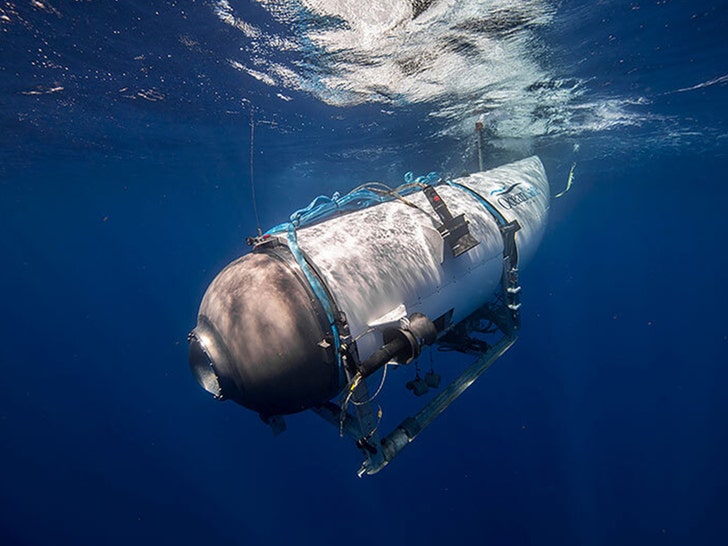The tragic Titan Disaster, involving the unfortunate submersible, has raised awareness of the legal difficulties associated with culpability waivers and their ramifications for the victims’ families. The specifics of the case, the responsibility waiver that the passengers signed, the firms involved, and the potential effects of this decision will all be covered in this article.

Credits: amp.tmz.com
The Titan Disaster Unfolds:
The OceanGate submersible faced a disastrous catastrophe on an unlucky day, which led to the loss of life. The tragedy has sparked debate over the relatives of the deceased’s legal options and how the liability waiver may have constrained them.
The Liability Waiver:
The agreement the four passengers signed before setting out on their tragic journey could have a big impact on any litigation the families decide to launch. OceanGate may be exempt from liability for harm or death, even in circumstances of negligence, under the applicable law specified in the contract, which is the Bahamas, provided that the risks were fully informed to the participants.
Understanding the Waiver’s Exceptions:
There is a major exception even though the liability waiver might defend OceanGate against some cases. The waiver wouldn’t be enforceable if a judge found that the business was “grossly negligent” in its conduct. A lack of care that shows heedless disdain for the safety or life of others is referred to as gross negligence. In such circumstances, the families could be able to take OceanGate to court.
The Companies Involved:
Following the Titan Disaster, questions have been raised about OceanGate, the firm in charge of running the unfortunate submersible. OceanGate, a company well-known for its work in deep-sea exploration and submarine technologies, must now handle the legal and reputational difficulties brought on by the tragedy.
Impact on OceanGate:
If not found to have been highly negligent, the liability waiver may safeguard OceanGate from significant financial liabilities and reputational harm. The Titan Disaster’s aftermath, though, may still have a big effect on how the public and the industry view the business.
Analysis of the Move:
The presence of a liability release in the contract calls into question the fairness and power dynamics between OceanGate and the participants. When determining whether the waiver can be enforced, factors like the passengers’ financial situation and access to legal representation may be taken into account. The legitimacy of the waiver will also be greatly influenced by how well the language used in it is written.
Potential Impact on Families:
The families of the victims may find their choices for pursuing compensation severely constrained if the responsibility waiver turns out to be enforceable. To defeat the waiver’s defence, they would need to demonstrate that OceanGate acted with egregious carelessness. The jurisdiction, the waiver’s wording, and the capacity to prove the company’s negligence will all affect how any potential legal disputes turn out.
Conclusion:
The Titan Disaster has brought responsibility waiver concerns and their ramifications to light, igniting a wider debate about how to strike a balance between participants’ rights and organisations like OceanGate’s obligations. The exception for severe negligence gives the relatives of the victims hope in their pursuit of justice, even though the signed responsibility release may at first appear to prevent them from taking legal action.
The ability to show OceanGate’s level of negligence as well as the jurisdiction, phrasing, and clarity of the liability waiver all play a role in whether or not the responsibility waiver may be upheld. The corporation would not be able to rely on the waiver to release itself from obligation if a court found that it was willfully and wilfully grossly negligent. A greater bar for accountability is established by gross negligence, which is characterised by a careless disregard for the security and lives of others.











